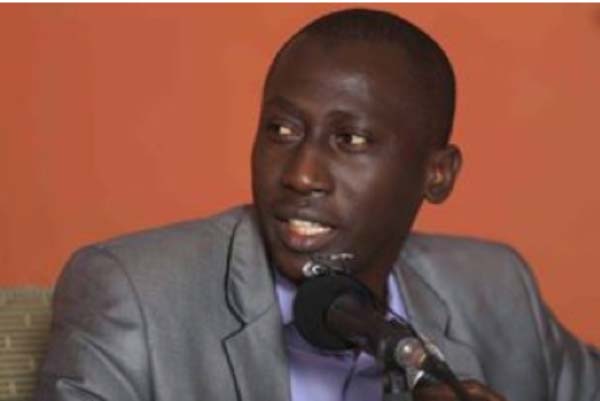
Today’s edition of the weekly Youth Forum brings you the recent press conference organized by the National Youth Council (NYC) ahead of the upcoming 10th anniversary of the African Youth Charter Summit in The Gambia.
Dubbed Banjul+10, the continental youth summit in Banjul will be held from 23 to 27 May 2016 under the theme: “Celebrating ten years of growth and achievement”. It is aligned to the AU 2016 theme: “The Year of Human Rights”.
The Executive Director of the NYC, Lamin Darboe, said Africa’s youthful population is Africa’s greatest asset. To ensure that they do not lose sight of this truth, and to provide a strategic and legal framework for promoting youth inclusion and empowerment, the African Union adopted the African Youth Charter (AYC) at the seventh ordinary session of the AU Summit in Banjul, Gambia, July 2006.
“It was indeed a historic moment, where full recognition of the value of Africa’s youths was given at the very highest political level in Africa.
“So far, 43 countries have signed the charter, and 37 have ratified it. It was indeed the fastest ratified legal instrument of the African Union, for which reason African countries can congratulate themselves for recognizing and honouring the place of youths.
“Also, it is important to note that beyond Africa the African Youth Charter is well-known, and has inspired international youth forums, organisations, and policies in Europe, South America, USA, UN agencies, and so on.”
He pointed out that the commemoration of the tenth anniversary of the Youth Charter will be under the theme: “African Year of Human Rights: Promoting Ethics and Cultural Diversity as an Essential Right for the People of Africa.”
As a “rights-based” policy framework, it is critical to foreground youth rights in all its facets, and as a guideline towards the achievement of the desired developmental outcomes for young people in Africa.
The NYC director pointed out that this theme is quite apt as it is also in line with the continental theme for 2016 which is: “The African Year of Human Rights.”
“The refection on this theme will bring to the fore the need to promote cultural diversity, build a culture of peace and peaceful coexistence in the continent.”
Darboe added that Banjul has offered to host the tenth year commemoration of the Youth Charter, as The Gambia has played important roles in the growing process of the AYC; as it was not only among the first five countries in the continent to ratify the Charter, but also proceeded with the Charter’s progressive and continuous implementation.
He revealed that in 2013, Banjul trained African Youth Charter Ambassadors, providing them with important knowledge, skills, related to the African Youth Charter so that they could perform their role efficiently within the assigned duties and responsibilities, all over the continent and beyond.
He said the mobile application of the AYC launched during the same event in Banjul has strongly contributed to the popularization of the AYC.
The 24th ordinary session of the Assembly of Heads of State and Government adopted the Declaration and Plan of Action on Employment, Poverty Eradication and Inclusive Development.
The Declaration and Plan of Action are built on Six Key Priority Areas (KPA), of which KPA 2 is on youth and women employment. This has since been elaborated to respond not only to the programme priorities laid down in other frameworks of relevance, notably the overarching blueprint for continental action on employment, social protection and
Inclusive development – the Ouaga + 10 Declaration and Plan of Action – but also the Social Policy Framework (SPF); the Social Protection Plan for the Informal Economy and Rural Workers (SPIREWORK); the Programme on Upgrading the Informal Economy; the Productivity Agenda for Africa; the Youth and Women Employment Pact; the Comprehensive Advanced Agricultural Development Programme (CAADP) and the Solemn Declaration on Gender Equality in Africa, among others.
A holistic approach in the implementation of the Charter cannot, therefore, be gainsaid, hence the need for strengthening the interphase between youths, culture and sports.
Objectives of the Banjul +10
The purpose of the Banjul +10 AYC commemoration is to provide a common platform for member states to conduct a peer review of their investments to “prepare the future” for Africa’s youths, with specific goals to provide a high-level political forum for intergenerational discourse and advocacy, stakeholders’ interaction, agenda setting and festival of Africa’s youth agency.
It will also be carried out to ensure and facilitate broad-based and inclusive consultations that will set the baseline for assessing progress in the youth development targets of Africa’s growth and development paradigm beyond 2015.
It provides an avenue for discussion on the proposed Africa demographic framework that will guide the application of a youth lens at all levels, including a youth lens in the rollout of the AU 2063 Agenda.
Furthermore, it will help to showcase the progress African youths are making across all fields of human endeavour surviving against all odds, leading innovation, creativity and public service.
Format and Activity Schedule: The actual commemorative events will be over a period of five days. The following activities will anchor the Banjul + 10 anniversary celebration.
a. Africa Youth Summit (Day 1 and 2)
This will be a structured engagement among the youths on the African Youth Charter, and specifically on the implementation of the various chapters there in.
The forum will delve into challenges experienced and the opportunities available given the emerging continental and global trends. Of special focus will be cultural diversity and mainstreaming of persons with disability.
The key documents that will inform the youths’ conversations will include: Agenda 2063, Africa Youth Charter, Continental Strategy for TVET, Continental Education Strategy for Africa, Sexual and Reproductive Health and Rights Continental Policy Framework, and Reports from Intergenerational Dialogue with PAP, Chairperson’s Tweet Chat and Town Hall meeting with the Youth, Africa Youth Day 2015, PYU 2015 report, among others.
It is also expected that continent-wide discussions on the youth charter shall have taken place, and youth voices from across the continent will have been collected and collated for consideration at the forum.
Mechanisms will be put in place for this, which will include social media and an online portal. The outcome of the forum will form part of the agenda during the experts meeting. The youth summit will take two days.
Specialised Technical Committee (STC) on Youth, Culture and Sports Experts Meeting (Day 2 and 3) this will take two days; one of the key items of the meeting’s agenda will be discussions around the outcomes of the Youth Summit.
Youth representatives will be part of these deliberations. It will be expected that the outcomes will also feed into the ministerial meeting – that is, the Ministerial Meeting on Day 4.



